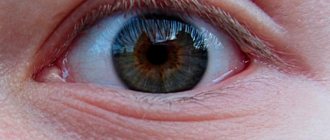Nervous
In the human body, the nervous system plays a leading role in regulating the functioning of all organs and systems of our body.
In addition, it is the basis of the psyche, that is, it is the soil (or matter) on which mental functions develop: perception, thinking, memory, emotions, will, personal characteristics. The state of the nervous system and psyche directly determines the health of the entire body. A healthy nervous system and psyche ensure the normal functioning of the entire body.
Disorders and diseases of the nervous system provoke diseases of internal organs, determine susceptibility to infectious diseases, allergic reactions, and affect the body’s ability to regenerate and recover.
«Nervous soil
“It is customary to call any painful symptoms or healthy manifestations in the body caused by changes in the mental sphere.
Doctors even identified a whole direction in medicine and a whole group of diseases caused by disturbances in the functioning of the nervous system - psychosomatics. Psychosomatic diseases include a large list of pathological conditions:
- hypertension,
- bronchial asthma,
- irritable bowel syndrome,
- eczema,
- obesity or pathological thinness,
- hyperthermia of central origin (increase in temperature), etc.
That is, all these disorders arise on a “nervous basis”.
Many normal (that is, not painful) physical sensations in the body, familiar to everyone, have a mental origin and develop on a “nervous basis.”
The most common of them: a feeling of heaviness in the chest or in the “solar plexus” area during excitement; feeling of a warm wave when experiencing pleasure; or “cold down the spine” with fear; dry mouth, palpitations, shortness of breath, “internal trembling”, weakness, restlessness, urge to go to the toilet, itching, etc.
What not to do at high temperatures
You should react to an elevated temperature without panic, but with special care.
It is not recommended to bring it down in the first minutes after the increase; you need to let the body cope with the temperature on its own. At this time, the body’s defenses are mobilized and pathogens of various diseases die. But even when lowering the temperature, you should not strive for 36.6. In the first days of illness, this is unlikely to be achieved. Rubbing, especially with vinegar or alcohol solutions, is not recommended. However, this practice still exists at home. If a patient with a high fever is pale and his limbs are cold to the touch (so-called white hyperthermia), then any rubbing is contraindicated for him and, in addition to antipyretics, antispasmodics are recommended. The fact is that cold extremities are caused by vasospasm. And in this case, cold rubbing with vinegar or alcohol-containing liquids can only worsen the situation with the blood vessels.
Wiping with vinegar is not indicated for adults and children with respiratory manifestations of the disease or chronic pathologies of the respiratory system. Vapors can worsen the patient's condition and affect the breathing process. Also, intolerance to vinegar or alcohol, as well as the presence of damage and irritation of the skin, are contraindications to rubbing.
At high temperatures, it is not recommended to eat rich, fatty foods and sugar. An increase in glucose levels in the body reduces the number of white blood cells, which are responsible for destroying infected cells. Which can harm the process of fighting bacteria and viruses. And fatty foods create additional stress on digestion and the body devotes some of its energy to this process, instead of fighting the enemy.
Speaking about drinking liquid at a fever, it should be noted that hot drinking is strictly contraindicated! Especially coffee. Caffeine causes dehydration. A hot drink warms up the body even more. Only warm fruit drinks and herbal teas.
Frequently asked questions
Is it true that if a person has been in a state of nervous tension for a long time, he becomes more susceptible to various diseases? Can a nervous condition lead to illness?
Doctors' observations say that an initially mentally and physically healthy person is able to endure prolonged or severe stress without subsequent complications in the form of illnesses.
But if the body already has its own “weak points” in the form of a predisposition to diseases, disorders in the early (not yet identified) stages, or is weakened by a disease, then overstrain of the nervous system can trigger a whole cascade of ailments. Frequent examples of such developments are the formation of hypertension, weight loss or gain after stressful events.
Is it true that all “diseases are from nerves”?
Many diseases have causes and mechanisms of development in the form of disorders of the nervous system and psyche. But it is not correct to say that “all diseases are from nerves.” There are other causes for diseases: genetic defects, infections and poisonings, injuries, there are many disorders with an undetected etiology.
Can internal diseases cause mental disorders?
Yes. Body and psyche are connected. A significant part of diseases of internal organs can contribute to behavioral disorders and lead to mental illness.
For example, atherosclerosis and hypertension, if left untreated and progressing, will cause encephalopathy and psychoorganic syndrome (decreased memory, intelligence, emotional instability). Insufficiency of the thyroid gland leads to a decrease in intellectual capabilities.
Thermoregulation in the body
For normal human life it is necessary that heat exchange be carried out constantly. It depends on the characteristics of the organism and on the presence of various reflex stimuli, and changes can have an effect even if the ambient temperature remains unchanged.
Violation of thermoregulation
First of all, such violations can occur as a result of exposure to external or internal factors. For example, internal diseases include various types of diseases.
The main symptoms can be considered:
- chills;
- chills, as a result of hyperkinesis - when involuntary muscle contractions occur;
- as a result of hypothermia - the consequences of hypothermia;
- as a consequence of hyperthermia - in case of overheating of the body.
The main causes of thermoregulation disorders are:
- congenital or acquired defect of the hypothalamus. It can negatively affect the functioning of many internal organs, including body temperature itself;
- climate change. This external factor is capable of influencing body temperature as a result of adaptation of the body;
- alcohol abuse;
- a consequence of processes associated with aging;
- various mental disorders.
Nervous symptoms and pain
The most common symptoms and complaints, that is, they can arise from “nerves”:
- insomnia, early and frequent awakenings, difficulty falling asleep, daytime sleepiness,
- lack of air, feeling of incomplete inspiration, increased breathing,
- a wave of heat or cold throughout the body, chills,
- feeling of inner trembling,
- palpitations, arrhythmia,
- headache, pain of any localization,
- feeling of heaviness in the chest or other localization,
- lump in the throat, feeling of a foreign body in the throat,
- anxiety, melancholy, apathy,
- obsessive fears, doubts, movements,
- floods of thoughts,
- obsessive feelings of guilt or resentment,
- increased or decreased body temperature,
- weight gain (obesity), weight loss (cachexia), weight fluctuations,
- increase or decrease in blood pressure, pressure surges,
- skin rashes of any shape and location,
- nausea, vomiting, abdominal discomfort, diarrhea or constipation,
- frequent urge to urinate, feeling of a full bladder, difficulty urinating,
- trembling, feeling of “internal trembling”,
- feeling of numbness in any part of the body,
- loss or increased perception of taste, light, smell, sounds, touch,
- decreased memory or excessive memorization,
- attention disorders,
- increased tearfulness or lack of feelings and emotions,
- aggressiveness, resentment, rancor, vindictiveness, heightened sense of justice, jealousy,
- decrease or increase in volitional activity.
These complaints may be a consequence of a malfunction of the nervous system (that is, arise from nervousness). However, such symptoms can also manifest themselves in ordinary somatic diseases (inflammation, trauma, dystrophy, vascular disorders, infections, etc.).
Therefore, even if you are faced with the presence of several symptoms from this list at once, you cannot draw a conclusion about the presence of “nervous soil”. Such a conclusion can only be made by a doctor who will examine, clarify the condition and determine the diagnosis.
Can stress cause fever?
In this article, the therapist at the NATALI-MED medical center will consider the possibility of an increase in temperature due to stress, which some patients are interested in.
The fact is that an increase in body temperature above 37.2 degrees is a common problem that causes many patients to consult a doctor. The symptom may be accompanied by skin rashes, aches in muscles and joints, which allows a good therapist at the NATALI-MED medical center to make the correct diagnosis. Temperature indicates our body’s fight against viral infections, especially in respiratory diseases, but temperature can also indicate the penetration of infection.
In this article we will try to figure out whether the temperature can rise due to stress. If you are concerned about an elevated temperature, of course, you need to undergo a full examination by a doctor at the NATALI-MED medical center - this is often due to the penetration of a virus into the body. Some believe that the temperature may rise due to stress, and to come to this conclusion, it is necessary to consult a doctor and rule out other causes of this symptom. 80% of cases are associated with infection in the body, and in 19% the temperature rises due to disruption of the thyroid gland, autoimmune diseases, hypothalamic disease and others.
It should be understood that almost more depends on the patient than on the doctor, since attention to one’s health and timely consultation with a doctor allows one to avoid many health problems in the future. Once you have an appointment with a good therapist at the NATALI-MED medical center, you will definitely be prescribed a clinical blood test, a general urine test, a biochemical blood test and, if necessary, other examinations, such as an electrocardiogram, ultrasound, ultrasound and others. You can often come across the statement that the hypothalamus is “to blame” for the rise in temperature. The so-called hypothalamic syndrome can be accompanied by the following symptoms: impaired metabolism of fats and carbohydrates, headaches, increased sweating and thirst, the desire to eat sweets all the time; patients are worried about attacks of melancholy, increased irritability, and fever. In fact, the pathological syndrome is metabolic syndrome, obesity, diabetes, a symptom of HIV infection, hypertension, epilepsy or post-traumatic stress disorder. Such diverse symptoms may indicate problems with hormones, neurological diseases or mental disorders, and in case of the listed symptoms, you need to contact a good therapist at the NATALI-MED medical center, undergo an examination and find out what such serious symptoms indicate.
Inexplicable manifestations turn out to be the result of quite a few well-known diseases that can be treated. Hypothalamic syndrome is a rather dubious diagnosis, so its diagnosis requires a highly qualified doctor and the appointment of more serious examinations, including MRI of the head, consultation with an endocrinologist and others. An unreasonable increase in temperature may be a consequence of psychogenic fever, and scientists have noticed that thin women can have an increase in body temperature, while no infections were observed, as a result of which they found out that body temperature can increase from stress: the receptors of adipose tissue are irritated due to nervous overexcitation. Adipose tissue provides the body with heat, but does not supply the energy potential for which white fat is responsible. In the presence of infection, the immune system forces the body to work at full capacity; During stress, immune defense is not activated, but mechanisms limiting heat transfer are activated, which is how psychogenic fever occurs due to increased emotional excitement.
Scientists have found that such symptoms may indicate signs of lupus, AIDS, infection; they are typical for people who often experience anxiety and stress. Elevated body temperature also negatively affects sleep, so if these symptoms bother you, be sure to get examined at a good medical center in Strogino and consult with your doctor.
Should I lower the temperature or not?
There is no need to rush to lower the temperature. First of all, the patient must be examined by a doctor. You should follow the doctor’s recommendations: if he advises you to lower your temperature, then you should lower it. The doctor makes decisions based on the general picture of the disease and assessment of the patient’s condition, that is, recommendations are always individual.
However, if the patient has a severe fever and the temperature is high (39°C or higher), then he can be given an antipyretic drug, strictly following the instructions on the package. At the same time, you need to understand that you are fighting a symptom, not a disease.
The correct course of treatment involves identifying the cause of the high temperature and carrying out a set of measures aimed at treating the disease that caused its increase.
What is heat stress (overheating, hypothermia)?
Heat stress is a condition when the body cannot get rid of excess heat. When this happens, your body temperature rises and your heart rate increases.
As the body continues to accumulate heat, the person begins to lose concentration and has difficulty concentrating on any task, may become irritable or sick, and often loses the desire to drink. The next stage most often is fainting and even death if the person has not cooled down.
Factors that contribute to heat stress include high air temperature, radiant heat sources, high humidity, direct physical contact with hot objects, and strenuous exercise.








